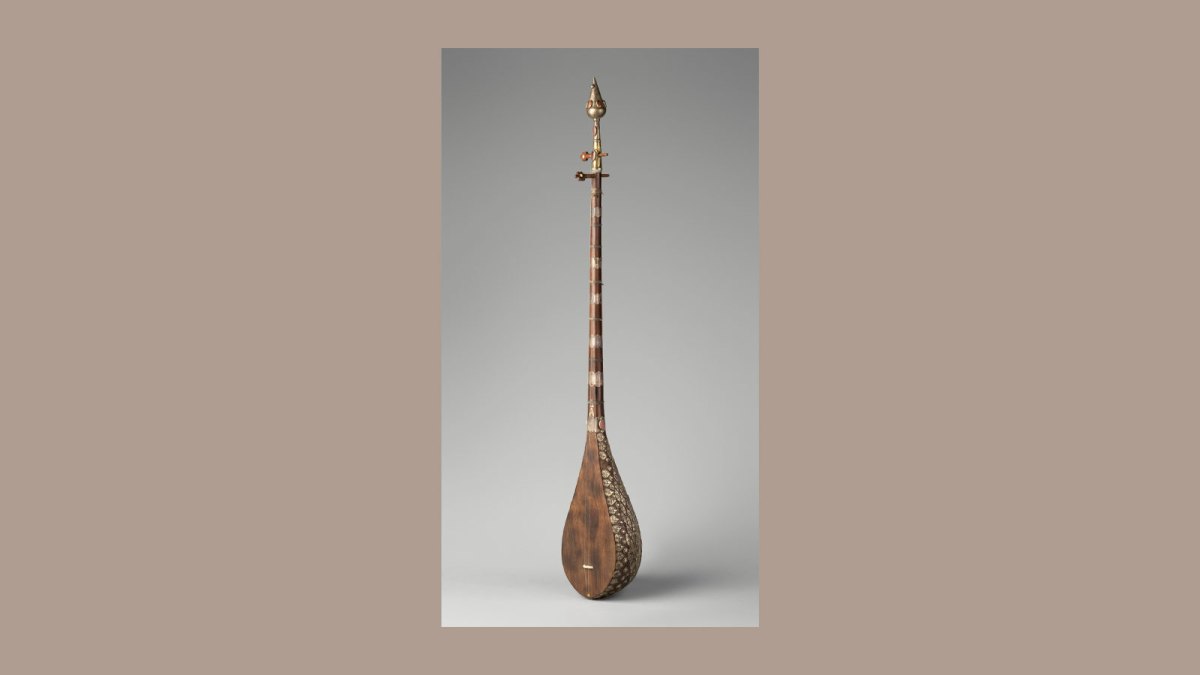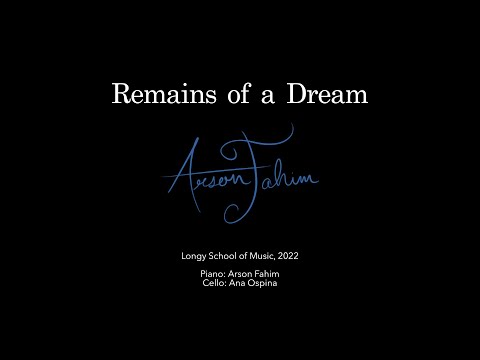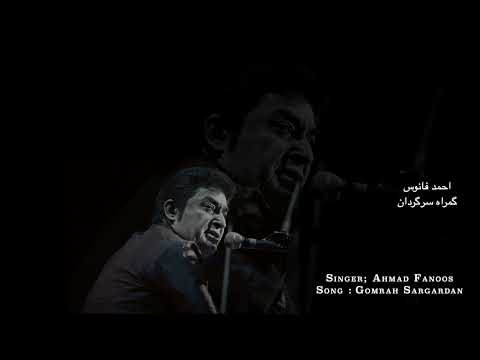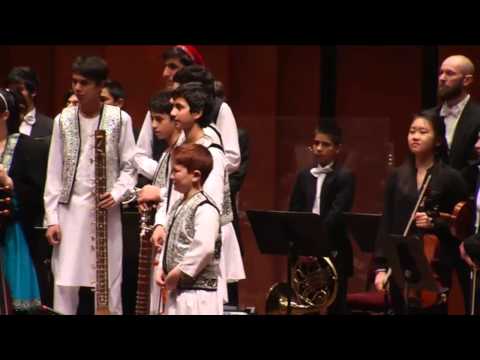Icy silence is all that’s left of Afghanistan’s musical terrain. When the Taliban rose to power in 2021, accounts of immolating instruments and violent oppression of musicians foreshadowed censorship of virtually all forms of self-expression—an intimately harrowing circumstance for Afghan musicians.
The Taliban rule of 1996–2001 was characterized by similarly strict censorship, including a wide ban on most forms of music, a cause of “moral corruption” according to the government’s ideology. When the Taliban fell from power in 2001 following the U.S.-led invasion of the country, the Islamic Republic of Afghanistan built some democratic structures and adopted a constitution in 2004. For a time, Afghanistan reclaimed its vibrant musical culture: Children studied at music schools, televised singing competitions earned national attention, and ensemble directors brought music education and performance opportunities to women and girls, whose rights had been severely curtailed under Taliban laws of the ‘90s. When the Taliban regained control in August 2021, many musicians fled the country for their safety. Many others could not.
The stories of oppression, resistance, and activism that follow are those of three young Afghan musicians who now live abroad, and who continue to perform and study music for those who no longer have that right.
Arson Fahim
Born a refugee in Pakistan, Arson Fahim is a 23-year-old composer and pianist now studying at the Longy School of Music in Cambridge, Massachusetts.
I hadn’t seen a piano in real life until I was 12, which is when I started taking lessons. My only way of knowing about the piano was online, movies or TV. “The Pianist” is a huge part of my journey as a musician. That movie is where I saw a piano for the first time, got inspired by it and became curious about it. How can a piano save a person’s life? It’s just a thing that makes some sounds. But how would it save a life? How can it be that powerful? In my country, music doesn’t save lives, it gets you killed.
When I started [taking lessons], the Taliban were not in power and music was not banned. I went to the Afghanistan National Institute of Music after going to a learning center for a few weeks. The school would receive threats and, at least in one case, was bombed. The threats were there even before the Taliban took power, but that didn’t really scare me, or pretty much anyone else I can think of at the school. All of us knew that what we were doing was dangerous. Yet we all did it. For us, playing music was a form of resistance.
I got to the U.S. on August 2, 2021, and on August 15, the Taliban took over. Those were some of the hardest days of my life, to leave my family and all of my friends at a time when things were already getting worse every day, and then to read that the president had left, and to read about the chaos at the airport, and seeing videos of people falling off airplanes because that’s how desperate they were to get out of this country… It was really hard to go through all of that. It’s still really hard. It’s always like, “Why do I get to be safe and be here, and not all these other people?”
It feels like I have a huge responsibility to use this freedom, safety and security to raise awareness of what’s going on in Afghanistan, and to keep Afghanistan’s music alive. I don’t want my music to just be some sounds. I want my music to be a message, and a way for me to say what I want to say. To me, that’s become the purpose in my life.
Things that I’m trying to express in my music tend to be very sad and intense. I decided for [my recent composition], “Forbidden Dances,” that I was going to write a happy piece. Afghan music is always so joyful and happy, despite everything that Afghans have gone through. But it ended up being really hard for me to write something happy about dance and music from my country knowing that since 2021, when the Taliban took over, music has been banned. Dance is not allowed.
Me and other musicians in Afghanistan, and musicians in exile, are going to take music back to Afghanistan as soon as we can. One of my goals is to have a music school in Afghanistan, specifically in Bamyan, where the famous Buddha statues were, which the Taliban destroyed in 2001. They were thousands of years old, and such an important and beautiful part of Afghanistan’s cultural heritage. I think having a music school there, and having concerts there, would be such a strong symbol of perseverance and love.
I’m not willing to give up on music even if it costs me my life. I’m willing to commit the crime of music. Such a funny way of saying I’m a musician: ”Yeah, I’m a criminal because I play music.”
The latest from VAN, delivered straight to your inbox
Mehran Fanoos
Mehran Fanoos is a 19-year-old violinist from Kabul, now studying with Mimi Zweig at the Jacobs School of Music at the University of Indiana in Bloomington, Indiana.
It’s hard for instrumentalists to make a career in Afghanistan, even when there was no Taliban. I’ve had the experience of playing in front of people, and at the end they’re like, “You’re such a good musician, why don’t you do something else and go study computer science?” But I had a lot of people encouraging me; my family did, my school, [ANIM’s] director, they all said that I should continue music. That’s why I kept going.
I was born in Kabul, into a musical family. My dad is a ghazal singer, which is a form of Indian classical music. But I don’t have a western classical musical background.
I went to [high school in] India, and India is not [well known for its] western classical music. And I’m really passionate about western classical music; I couldn’t find a really good teacher. I found a teacher who really helped me with musical stuff—he was really musical. But I had to deal with everything technical. The thing which really helped my musical foundation was hearing things and listening to music.
We have an ensemble called the Fanoos Ensemble, which is me, my dad and my older brother. So we do this collaboration of Afghan music and traditional western classical music. My dad is singing Afghan traditional music, and there’s a tabla, which is a traditional instrument of Afghanistan [and throughout the Indian subcontinent—Ed.], and then we have piano and violin. We mix them all together, not just the sound, but also harmonically, to fit Afghan music.
I want to show the beauty of Afghan music. It needs a lot of understanding. There are a lot of musicians from Afghanistan who are trying to do the same thing. We are a country that doesn’t have a history of western classical music, so we connect traditional music to western classical music to show it to other people.
Maram Ataee
21-year-old pianist Maram Ataee was born in Cairo before attending high school in her family’s home city of Kabul. She is currently studying piano with Arthur Green at the University of Michigan.
My passion and my love is really strong for western classical music. I always yearned to be a concert pianist, in order to play western classical music. Since I came here, that was my biggest dream.
I don’t have any musicians in my family, just me. I started playing piano when I was five, in Egypt. My mom and my dad’s plan was for their daughter to learn a hobby, like a sport or an instrument. They asked me what instrument I liked; I liked piano, because that was really the only instrument that was familiar to me. They did not think that I would get older and choose it as my career. Even me, I did not think like that.
They were super supportive when I was in Egypt. When I went to Afghanistan, my dad did not let me play piano again, because he was scared that people might judge him, and for our personal safety. I was not allowed to play for a whole year. That was the only reason they were not supportive during that time: because they were worried. A few years before that, there was an attack that happened [at the Afghanistan National Institute of Music]. My dad was really worried about that.
I did not realize how music had a big impact on me until I actually lost it in Afghanistan. I did not think about it in Egypt, because it was there the whole time. But the moment that I lost it in Afghanistan, I realized that I wanted it more than anything else.
I wasn’t able to speak properly in Afghanistan; I did not have friends, I felt different. I felt like the only thing that would make me feel better about myself was piano. I was really serious, and started begging my family for a whole year [to let me] do music again, until eventually, my dad noticed that I was really depressed, and I was getting worse. That’s when my dad was like, “OK, it is what it is, you can continue playing piano again.”
In Afghanistan we did not have venues or anything where we could perform. Sometimes—it was rare—events wanted [the ANIM] orchestra, and managed to find a place for that. But most of our work in Afghanistan was just recording. There was not a lot of live music that you could listen to.
Now, I’m focusing on western classical music. The pieces that I practice are all western classical, but on the side, I listen to Afghan songs and then I arrange them on piano; I record and publish them. I have a responsibility as an Afghan pianist to do that because now in Afghanistan, people can’t listen to music, or record music, or play or arrange music at all. Basically, music is dying there. ¶
Subscribers keep VAN running!
VAN is proud to be an independent classical music magazine thanks to our subscribers. For just over 10 cents a day, you can enjoy unlimited access to over 875 articles in our archives—and get new ones delivered straight to your inbox each week.
Not ready to commit to a full year?
You can test-drive VAN for one month for the price of a coffee.





